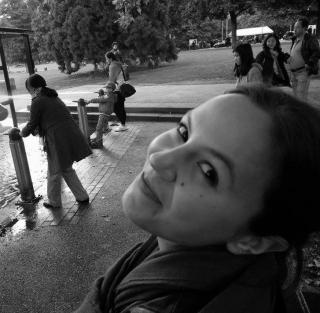Czy wprowadzenie systemu „płać ile chcesz” jest w stanie ograniczyć powszechność piractwa? GRAPE | Tłoczone z danych dla...
-
-
W obecnych realiach utrzymanie muzeum z dobrowolnych wpłat graniczny z niemożliwością. GRAPE-Tłoczone z danych dla DGP.
-
-
With the end of the year, we wrapped up our first PWYW experiment in theatres. Check out the results and stay tuned for similar upcoming experiments!
-
W naszym najnowszym badaniu “Płać ile chcesz” rozpoczęliśmy współpracę z Orange Umbrella Tours, organizacją prowadzącą wycieczki po warszawskiej starówce. Współpraca układa się doskonale!
-
-
Przeprowadziliśmy dotychczas trzy eksperymenty. Pierwsze dwa zostały przeprowadzone wśród klientów księgarni internetowych dystrybuujących ebooki i audiobooki – Virtualo i...
Opublikowane | Published
-
Do cultural differences affect voluntary payment decisions? Evidence from guided tours | Journal of Tourism and Cultural Change Przeczytaj streszczenie | Read abstract
We provide an empirical explanation for cross-country differences in the size of the voluntary payments made for a good offered in a Pay-What-You-Want payment scheme. Using a sample of almost 500 international travellers from 50 nations participating in a guided tour that uses a voluntary payment method, we analyse the relationship between the size of the average voluntary payments and national values defined by Hofstede’s Cultural Dimensions (1983) as well as selected values from the World Value Survey (WVS). Strong correlations between certain cultural values and average payment sizes are found.
-
The effects of individual internal versus external reference prices on consumer decisions for pay-what-you-want payments | Central European Economic Journal Przeczytaj streszczenie | Read abstract
We empirically investigate the interaction between internal and external reference prices on stated payments in a Pay-What-You-Want (PWYW) scheme. Using results of a vignette experiment with e-books, we show that when an external reference price provided is lower than respondents’ internal reference prices, the average of PWYW payments significantly decreases compared with a situation in which the external reference price is not provided. The relationship is the opposite when the external reference price provided to respondents is higher than their internal reference prices. In such a case, upward pressure is created, thus the average of PWYW payments increases. These results remain true when we control for expected quality of e-books. Additionally, we find that when the external reference price is not provided, the size of PWYW payments depends positively on individual factors such as risk-taking propensity and perceived costs of e-book production.
The data summarizes results of a vignette experiment conducted in cooperation with Virtualo e-book store on the sample of their newsletter subscribed clients. In the file, you will find the Excel file with the data and full list of variables with descriptions. All questions from the original survey (conduced in Polish) were translated into English. Note that the dataset might not be exclusively owned by the authors. Use of data requires a license from the data owner. If you wish to use them for your own work, please contact authors for permissions: Anna Kukla, Katarzyna Zagórska.
-
‘If I can set my own price for tonight’s show I will pay more after watching it!’ – evidence from Pay What You Want experiment | Applied Economics Letters Przeczytaj streszczenie | Read abstract
In a field experiment conducted in cooperation with city theatres in Warsaw, we allowed some of the visitors to pay whatever they wanted for the tickets. Half of these visitors were asked randomly to make a voluntary payment after (instead of before) the performance. We found a significant positive difference between payments made after and before the show. In a specially designed survey we capture factors that may potentially explain this difference: the visitors’ general expectations towards the performance and different aspects of the audience experience.
The data summarizes results of field experiments conducted in three theaters in Warsaw. In the file, you will find the Excel file with the data and full list of variables with descriptions. All questions from the original survey (conduced in Polish) were translated into English. Note that the dataset might not be exclusively owned by the authors. Use of data requires a license from the data owner. If you wish to use them for your own work, please contact authors for permissions: Anna Kukla & Katarzyna Zagórska.

